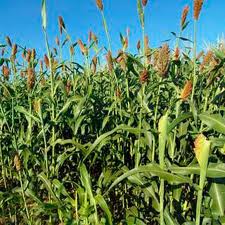The bioenergy and water nexus
 Renewable, sustainable sources of energy are an essential part of the transition to a low carbon, resource-efficient Green Economy. All forms of energy have, to a greater or lesser extent, an impact on water resources, and the relation between water and bioenergy (renewable energy derived from organic materials such as wood, biomass or agricultural by-products) is particularly complex. This report finds that bioenergy’s water demands are in large part linked with the cultivation and processing of feedstocks, such as crops, which in turn have important implications for sustainable agriculture, land use and food production. In a world where more than 70 percent of global freshwater is used for agriculture, the report says bioenergy development needs to be carefully planned to avoid it adding to existing pressures. This planning needs to reflect the increasing and competing needs for the same raw materials for uses such as food, animal fodder and fibre as the world’s population climbs to an expected nine billion by mid-century. In some cases, these considerations may argue against bioenergy development. However, the report outlines circumstances in which well-planned bioenergy development can improve agricultural practices, including promoting water efficiency and sustainable fertilizer use, and even improve access to water, thanks to water pumping and cleaning powered by bioenergy, and food security in the case of combined food-bioenergy production systems.
Renewable, sustainable sources of energy are an essential part of the transition to a low carbon, resource-efficient Green Economy. All forms of energy have, to a greater or lesser extent, an impact on water resources, and the relation between water and bioenergy (renewable energy derived from organic materials such as wood, biomass or agricultural by-products) is particularly complex. This report finds that bioenergy’s water demands are in large part linked with the cultivation and processing of feedstocks, such as crops, which in turn have important implications for sustainable agriculture, land use and food production. In a world where more than 70 percent of global freshwater is used for agriculture, the report says bioenergy development needs to be carefully planned to avoid it adding to existing pressures. This planning needs to reflect the increasing and competing needs for the same raw materials for uses such as food, animal fodder and fibre as the world’s population climbs to an expected nine billion by mid-century. In some cases, these considerations may argue against bioenergy development. However, the report outlines circumstances in which well-planned bioenergy development can improve agricultural practices, including promoting water efficiency and sustainable fertilizer use, and even improve access to water, thanks to water pumping and cleaning powered by bioenergy, and food security in the case of combined food-bioenergy production systems.
Related Content
- Determinants of household’s modern cooking and lighting energy transition in rural India: exploring household’s activities and its interactions with other households
- Examples of positive bioenergy and water relationships
- Renewable energy in the water, energy and food nexus
- Bioenergy, food security and poverty reduction: mitigating tradeoffs and promoting synergies along the water-energy-food security nexus
